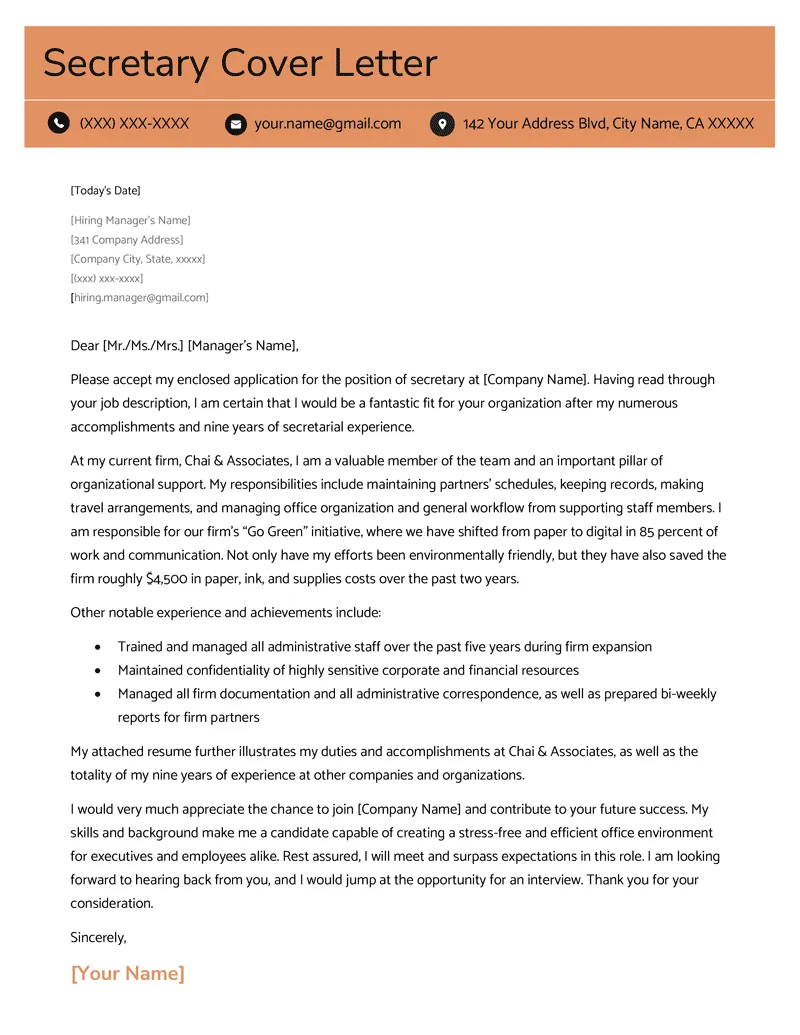What is a Secretary Cover Letter
A secretary cover letter is a crucial document that accompanies your resume when applying for a secretarial position. It serves as a formal introduction, allowing you to showcase your skills, experience, and enthusiasm for the role. Unlike a resume, which provides a factual overview of your qualifications, a cover letter offers an opportunity to personalize your application, demonstrate your understanding of the job requirements, and express your interest in the company. It is a chance to highlight specific achievements, tailor your skills to the specific job description, and convince the hiring manager that you are the ideal candidate. A well-crafted cover letter can significantly increase your chances of getting an interview by making a strong first impression and setting you apart from other applicants.
Why is a Cover Letter Important
In today’s competitive job market, a cover letter is not just a formality; it’s an essential tool for job seekers. It provides a platform to communicate your personality, writing style, and genuine interest in the role, elements that a resume alone cannot fully convey. A strong cover letter allows you to explain any gaps in your employment history, address specific requirements outlined in the job description, and demonstrate how your skills align with the company’s needs. By customizing your cover letter for each application, you show that you have taken the time to understand the position and are genuinely interested in the opportunity. Additionally, it can help you stand out from other candidates who may have similar qualifications but lack a compelling cover letter that highlights their unique strengths and enthusiasm. Including a well-written cover letter significantly improves your chances of securing an interview and ultimately landing your dream job.
Key Components of a Secretary Cover Letter
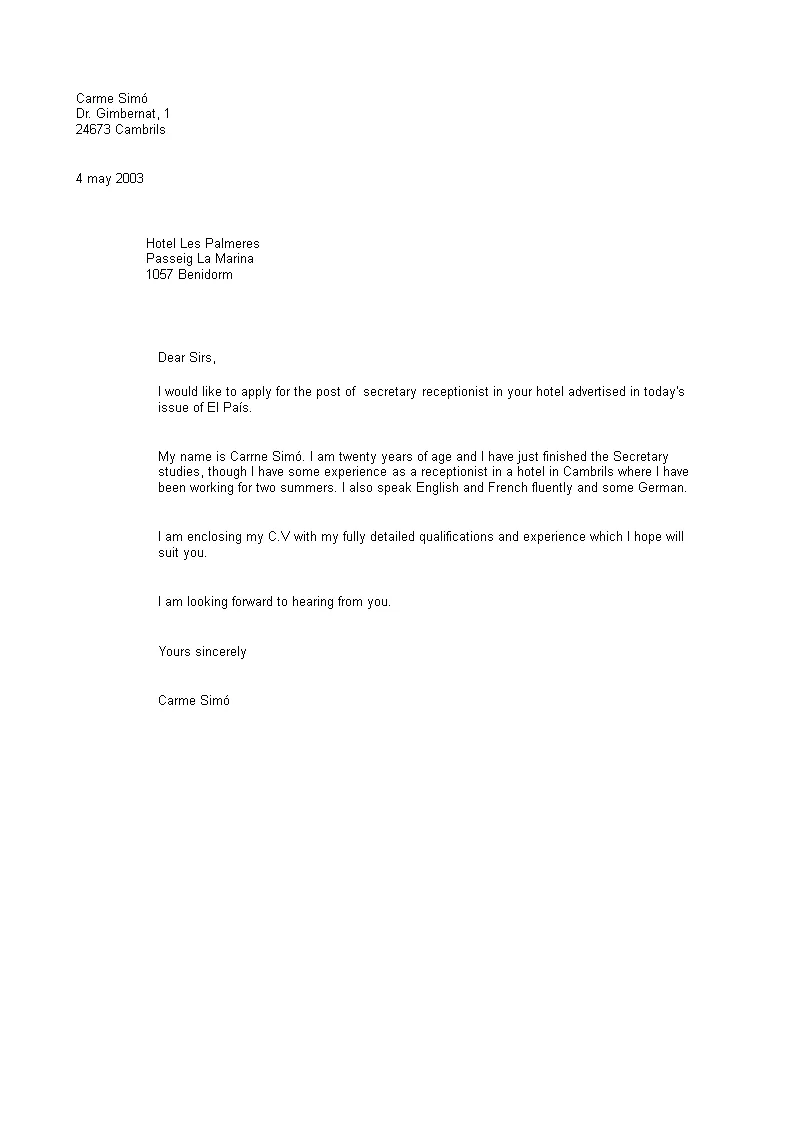
A well-structured secretary cover letter includes several key components that work together to create a compelling narrative and showcase your qualifications. These components, when used effectively, ensure your application stands out. Each element plays a critical role in presenting your best self to potential employers and ultimately increasing your chances of getting an interview. By mastering these key components, you can create a powerful cover letter that effectively highlights your skills, experiences, and personality.
Contact Information
At the top of your cover letter, include your contact information, such as your name, phone number, email address, and LinkedIn profile URL (optional). This ensures that the hiring manager can easily reach you. Make sure your contact information is accurate and professional. Consider using a professional-sounding email address instead of a casual one. The contact information should be clearly presented and easy to read, making it simple for the hiring manager to get in touch with you.
Greeting the Hiring Manager
Address the hiring manager by name if possible. Research the company or check the job posting to find out who the hiring manager is. If you can’t find a name, use a professional salutation, such as “Dear Hiring Manager.” Personalizing your greeting shows that you’ve done your research and are genuinely interested in the role. Avoid generic greetings like “To Whom It May Concern,” as they can make your letter seem impersonal and less engaging. Addressing the letter to a specific individual significantly increases its impact.
Opening Paragraph — Grab Attention
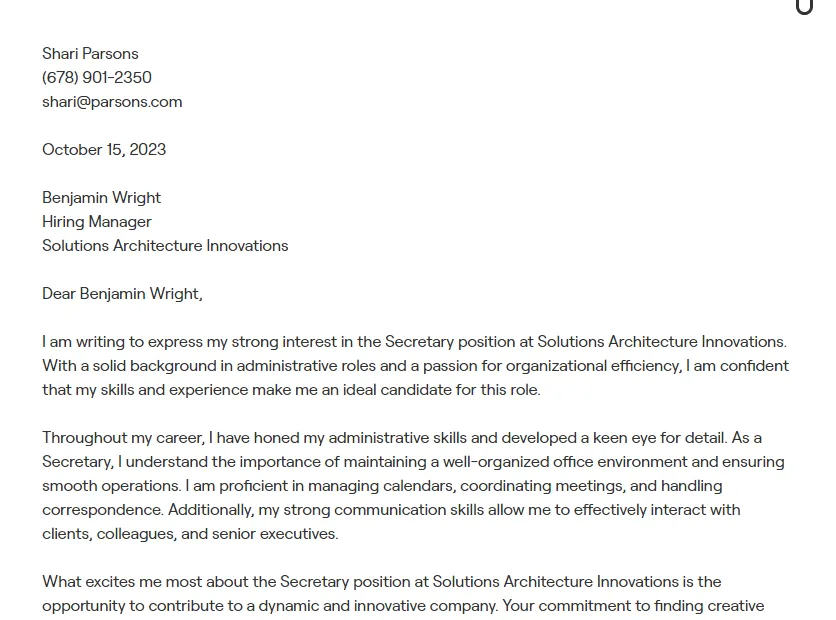
Start with a strong opening that grabs the reader’s attention. Briefly state the position you’re applying for and how you learned about it. Show your enthusiasm for the role and the company. Briefly mention a key skill or achievement that makes you a strong candidate. Your opening paragraph sets the tone for the rest of the letter, so it should be concise, engaging, and tailored to the specific job. This is your first opportunity to make a positive impression and encourage the hiring manager to continue reading, so it should be memorable and impactful.
Highlighting Your Skills and Experience
In the body of your cover letter, highlight your relevant skills and experience. Tailor your letter to match the requirements of the specific job description. Provide specific examples of your achievements and how you have used your skills in previous roles. Use action verbs to describe your accomplishments. Quantify your achievements whenever possible (e.g., “Managed a team of 5 secretaries,” “Reduced administrative costs by 15%”). The key is to demonstrate how your skills align with the employer’s needs. Use this section to showcase your qualifications and convince the hiring manager that you are the ideal candidate.
Administrative Skills
Emphasize your administrative skills, such as calendar management, scheduling meetings, managing correspondence, and preparing reports. Mention any experience with office equipment, such as printers, scanners, and phone systems. Highlight your proficiency in relevant software, such as Microsoft Office Suite (Word, Excel, PowerPoint, Outlook). If you have experience with specific administrative tasks, be sure to include them. Detail any experience with managing files, organizing documents, and maintaining records. Emphasize your efficiency and ability to manage multiple tasks simultaneously.
Communication Skills
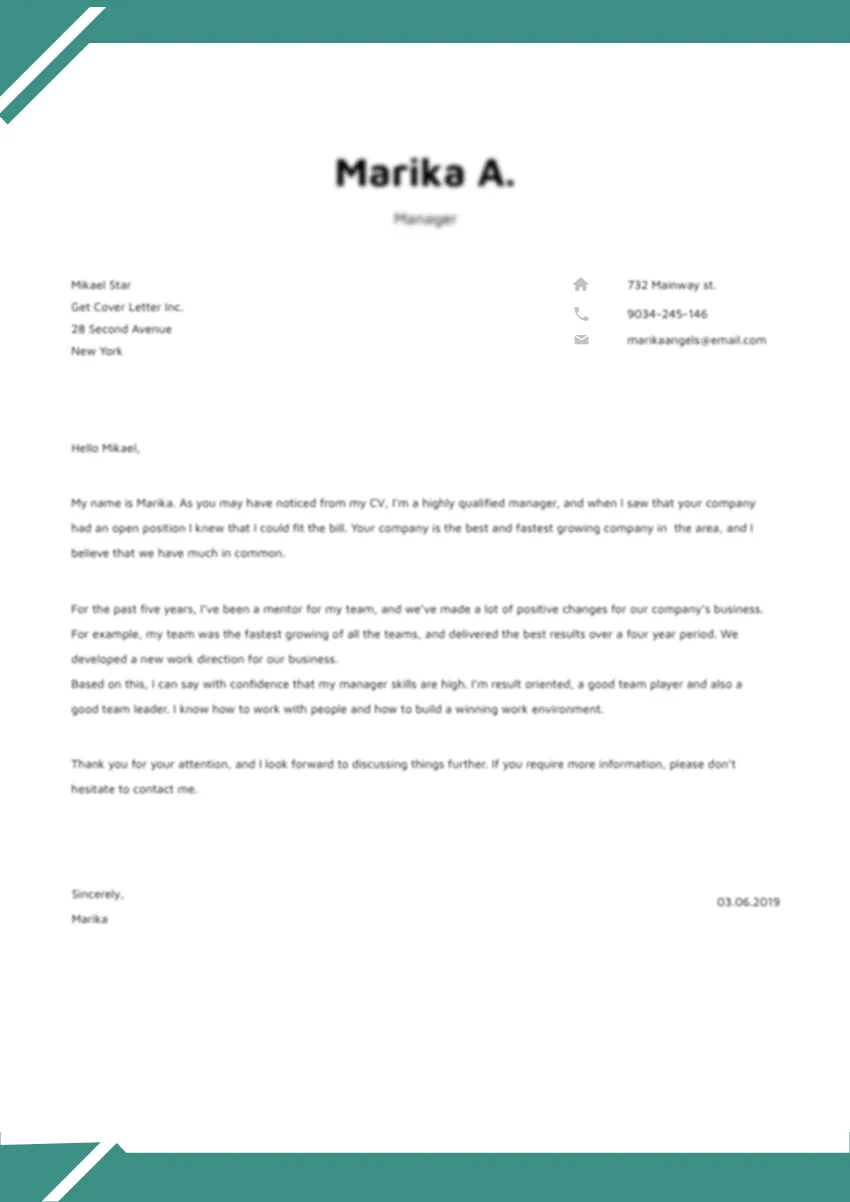
Showcase your communication skills, including both written and verbal communication. Mention your experience with drafting emails, letters, and memos. Highlight your ability to communicate effectively with clients, colleagues, and supervisors. Include any experience with phone etiquette and handling calls professionally. Provide examples of how you have resolved conflicts or handled difficult situations using effective communication. Emphasize your active listening skills and ability to understand and respond to various communication styles.
Technical Skills
List any relevant technical skills, such as proficiency in Microsoft Office Suite, data entry, database management, or other software. Mention any experience with office software such as CRM or project management tools. Detail your typing speed and accuracy. If the job requires specific software skills, ensure you mention them prominently. Highlight any technical skills that are mentioned in the job description, as this demonstrates your ability to fulfill the requirements of the role.
Quantifiable Achievements
Include quantifiable achievements that demonstrate your impact in previous roles. Instead of just listing responsibilities, explain what you accomplished. For example, instead of saying “Managed schedules,” say “Managed schedules for a team of 10, resulting in a 10% increase in meeting efficiency.” Mention any cost savings you achieved, any improvements in efficiency, or any positive outcomes you contributed to. By quantifying your achievements, you provide concrete evidence of your value as a secretary. Quantifiable achievements significantly enhance the impact of your cover letter.
Expressing Enthusiasm for the Role
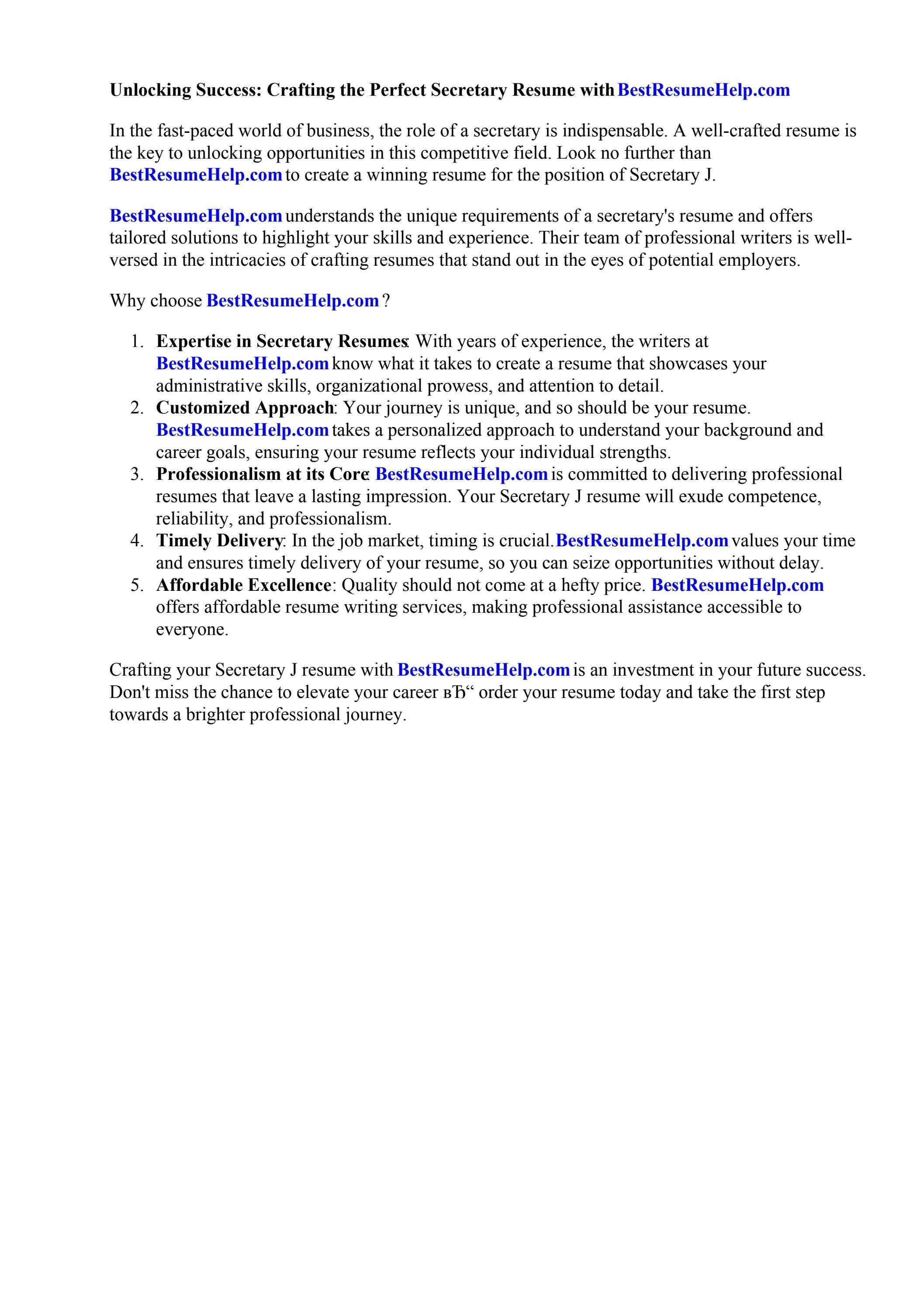
Clearly express your enthusiasm for the role and the company. Explain why you are interested in the specific position and what attracts you to the organization. If possible, mention something you admire about the company’s mission, values, or culture. Demonstrating genuine interest helps you stand out and shows the hiring manager that you have taken the time to research the company. Your enthusiasm should be evident throughout your cover letter, not just in one sentence. This will make your application more memorable.
Call to Action
End your cover letter with a clear call to action. Express your interest in an interview and indicate your availability. Thank the hiring manager for their time and consideration. Provide your contact information again. Make it easy for the hiring manager to take the next step. For example, “I am eager to discuss my qualifications further and am available for an interview at your earliest convenience.” A strong call to action motivates the reader to respond.
Closing and Signature
Use a professional closing, such as “Sincerely” or “Best regards.” Type your full name below the closing. If submitting a hard copy, leave space for your signature above your typed name. Your closing and signature should be courteous and professional. The closing should be consistent with the overall tone of your cover letter. Make sure your name is clearly legible and easy to identify.
Formatting Your Cover Letter
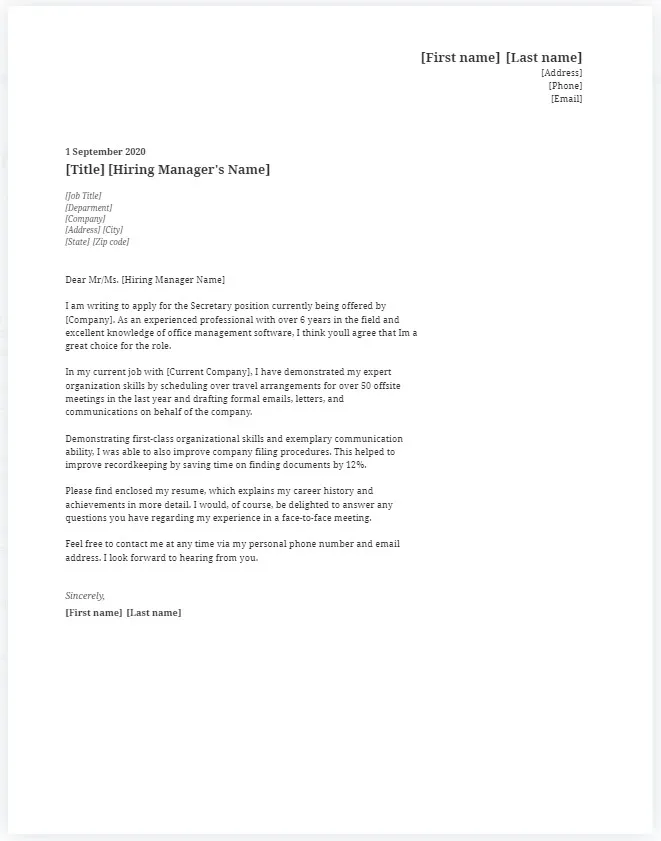
Proper formatting is crucial for creating a professional and readable cover letter. Use a standard font, such as Times New Roman, Arial, or Calibri, in a size between 10 and 12 points. Use single spacing within paragraphs and double spacing between paragraphs. Left-align your text and use a professional-looking header with your name and contact information. Keep your cover letter concise and to the point, ideally no more than one page. Proofread carefully for any formatting errors, such as inconsistent spacing or font changes. A well-formatted cover letter shows that you pay attention to detail.
Proofreading and Editing
Proofreading is essential to ensure your cover letter is free of errors. Carefully review your letter for any spelling, grammar, or punctuation mistakes. Read your cover letter aloud to catch any awkward phrasing or sentence structures. Ask a friend or family member to proofread it as well, as a fresh pair of eyes can often spot errors that you might miss. Correct any inconsistencies in capitalization, punctuation, or formatting. A polished cover letter demonstrates your attention to detail and professionalism. Errors can damage your credibility. This step is critical to getting your cover letter right. Pay close attention to detail to avoid mistakes.
Cover Letter Examples for Secretaries
Reviewing cover letter examples can help you understand the structure and tone of a successful cover letter. Search online for secretary cover letter examples to get an idea of how to format your own. Pay attention to the language used, the skills highlighted, and the overall tone of the letter. Use these examples as a guide, but make sure to tailor your cover letter to your own skills and experience. Consider examples to gain a clearer understanding of the elements, and consider using templates that are readily available to begin creating your letter. This can help you create a unique and impactful cover letter. Remember to customize the examples to reflect your individual qualifications.
In conclusion, a well-crafted secretary cover letter is a powerful tool for showcasing your skills, experience, and enthusiasm to potential employers. By following these guidelines and tailoring your letter to each specific job, you can increase your chances of getting an interview and landing your dream job. Always remember to proofread, edit, and personalize your cover letter for the best results. A strong cover letter can make all the difference in your job search. Utilize all the tips to ensure your cover letter helps you land the secretarial position you want.
